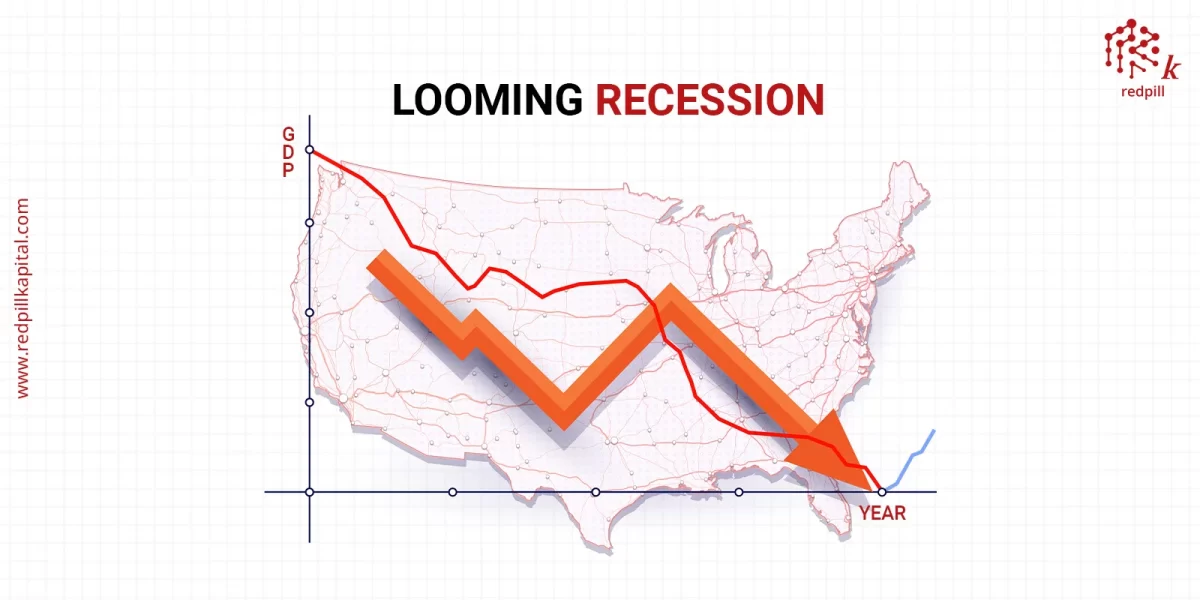There is a concern among many investors in real estate about the possibility of a recession in light of recent economic uncertainties and how that will affect the real estate market.
In most economic downturns, people lose jobs, and mortgage rates typically go higher than most can afford, crippling their ability to purchase properties. But that doesn’t always spell doom for real estate, so here’s a look at how a real estate investor can survive, or even thrive, during a recession.
1. Branding And Marketing
The best way to survive a recession is to keep marketing your brand. It’s about building a brand that stands out from the crowd.
Branding isn’t just about getting customers to recognize your business; it’s about getting customers to keep coming back for more business as you have established yourself as a reputable brand. One of the best ways to achieve this is through positive marketing.
While most businesses would understandably cut down on marketing during an economic downturn, that’s the perfect time to rump up your marketing efforts, as it has healthy returns. For instance, the return on investment (ROI) for email marketing is $36 for every $1 spent. Here’s what you stand to benefit from good marketing and branding:
- Gaining a larger audience
- Increased cash flow
- Help you take some of your competitors’ clients
2. Learn More About The Real Estate Market And The Recession
You need to have a working knowledge of the economy and how it will impact the real estate industry to stand a chance of surviving a recession. Get to know the causes of the recession and where the money is headed.
In a recession, not all economic sectors will slump; some might perform better than others. Use this knowledge to pivot your business to cater to those sectors that are doing better during the downturn.
Take the 2020 recession, for instance: while shopping in malls dipped by 70% and the office industry slumped due to work-from-home initiatives, the booming ecommerce industry led to a steep increase in demand for warehouses.
3. Invest In Technology
Investing in a customer relationship management (CRM) tool during a recession is one of the smartest moves you could make, as it has an average ROI of $8.71 for every dollar spent.
As a real estate brand, you can use CRM to track client information and make follow-ups. A sound CRM system should have features that enable you to access information about potential buyers and sellers easily and communicate with them using various channels.
Similarly, you can use social media sites and real estate apps to showcase your listings and increase your reach.
Consider technologies such as virtual tours and virtual staging to cut down on costs of staging an open day and staging a listing.
4. Work On Customer Retention Of Your Current Clientele
Keeping your already existing clients should be a major priority. When you work hard to maintain good relationships with your clients, they’ll appreciate it and return the favor. That makes them feel special goes a long way toward building trust. Try some of these customer service strategies:
- Maintain a customer feedback loop
- Provide personalized customer service
- Start a customer education program
- Give offers and discounts
- Provide incentives
5. Grow Your Network
Never underrate the power of networking, as it can help your business stay afloat during recessions. You can build relationships with friends and associates to expand your business’s reach and abilities.
A more extensive network will help in acquiring new business leads, which you can work towards closing to improve sales. Additionally, it will help you keep abreast of the latest trends in the market and identify best practices.
Further, networking will increase your connections and opportunities to explore new markets.
6. Cut Expenses
Tough times call for tough measures. Everyone has to make sacrifices to ensure the firm makes it through an economic downturn, which means cutting costs. Reducing expenses is a brilliant idea even in good times.
Lower your expenditure by eliminating items that don’t offer much to the business, such as a cable subscription in the office. Alternatively, realign your financial spending by reviewing your insurance providers to get a better deal, consolidating bank accounts, and avoiding unnecessary debt.
Improving efficiency will also help in cutting down costs as it minimizes wastage. Purchase the right tools, go paperless, and improve time and project management.
7. Stick To Your Business Plan
Economic recession is part and parcel of every business cycle. You don’t need to panic and sell everything. Just stick to your original business plan with just a few adjustments. To stay focused on the big picture, make it a point to refer to your long-term objectives and plans regularly.
Moreover, set short-term weekly and monthly goals, and tweak where necessary as long as they tally with the master plan. You may need to restructure the business plan as recessions can be unpredictable.
8. Re-Evaluate The Business
A recession is the perfect time to take a step back and take a long hard look at the business. Since there’s plenty of time on your hands, use the time to evaluate the company and find any weak points that need fixing.
Maybe business is low because you’re not marketing right, your pricing doesn’t make sense, or you don’t understand prospects. Go over your data, try to work where problems are, and implement potential solutions.
9. Create A Unique Value Proposition
Creating a unique value proposition is one of the best ways to thrive in any market. In real estate, this means differentiating yourself from the competition. That means providing something the others don’t offer.
That could mean anything that offers extras to clients, like diversifying your business by partnering with a mortgage broker, so you offer mortgage provision services in-house.
Final Word
One of the key lessons to surviving a recession is never to stop marketing. That will help build your brand as well as bring in new business. Alternatively, create a unique value proposition, invest in technology, and grow your network to improve sales.
On the other hand, save money by cutting back on expenditure, sticking to the business plan, and retaining your current clients. It also helps to keep abreast of the current economic environment to find opportunities you had not considered before.
Despite the macroeconomic headwinds of recession, your individual economic success could be amazing, as long as you can navigate and anticipate this crisis. What outwardly appears to be chaos may be an historic opportunity.







